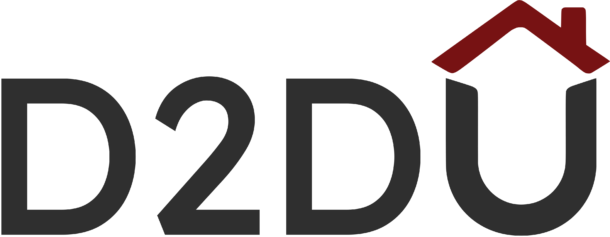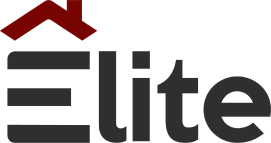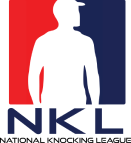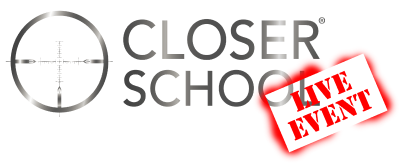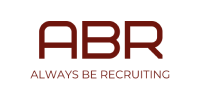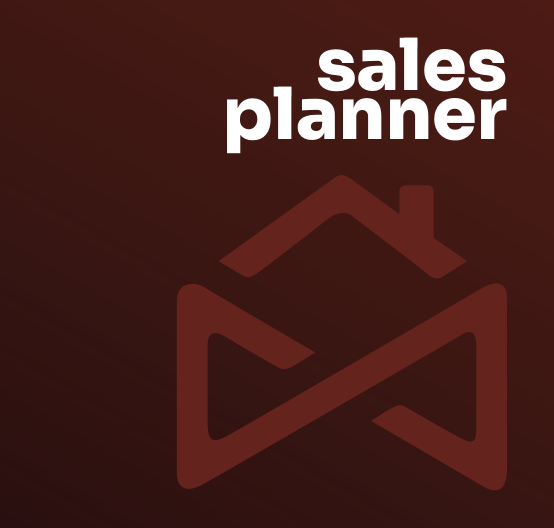Speaker 1: (00:02)
Bill, Can I help you?
Speaker2: Hey listen up, I’m bringing you the best content to ever exist in the door to door industry from sales leadership, recruiting, impersonal development.
Speaker 1:
Why would I need that?
Speaker 2:
Because never before have we been able to collaborate with the top experts in their industries, sharing their secrets and techniques and what makes them the best.
Speaker 1: Wait, who? Who are you?
Speaker 2:
I’m your host. Sam Taggart, creator of the D2D experts in D2Dcon. Is there a place we can sit down?
Speaker 1:
Well come on in.
Speaker 2: (00:32)
Vanilla is the fastest way to increase your Google and Facebook reviews through text with a 90% open rate. Vanilla Reviews is the simplest cheapest way to interact and engage with customers. Visit us at vanillagood.com for more information.
Speaker 3: (00:47)
Honestly, I’m Taggart. Welcome to the D2D podcast.
Speaker 3: (00:47)
Hi everyone. This is Sam Taggart with the D2D podcast and I’m here with Ian Cognac. Over the last two years, he was the number one sales rep at Sales Force there. You know Sales Force is one of the largest software companies in the world and this year is projected to do $15 billion in revenue.
So they’re the number one company to work for. And he was the number one sales rep. Though little different than knocking on doors to sell pest control, a little bit different than you know your typical solar sale. But what’s so powerful is sales is sales and he knocked doors cause he was actually a director of sales of a $60 million B2b copier company.
So selling copiers, business to business, knocking on door to door to door. So there’s a lot that he can relate to in our tribe. There’s a lot that he has to give and I think that cross contextual, bringing in the software sales, bringing in the B two B sales is something that can give insight to the sophistication of how we run our business. So super excited to have you on the show, Ian, and excited to jam today.
Speaker 4: (01:54)
Great to be here Sam. Thanks for having me.
Speaker 3: (01:56)
So tell me a little bit about how you got into the copier business. Like I literally just bought a new printer. So tell me, you know it, this one look, I’m like sitting here right next to it. I mean, I’m going to turn my computer so you can see my sleep new printer. It’s definitely a key.
Speaker 4: (02:12)
It’s beautiful. It’s beautiful. I got, I got one myself too. It’s right, right over here.
Speaker 3: (02:16)
Like I was like, we’re awesome printers and copiers, so, okay. Everybody needs them. That’s for sure. That’s why I’m like, so you go business like you. Yeah. Tell me a little bit about that business cause that’s, that’s quite interesting. Yeah.
Speaker 4: (02:29)
Yeah. So I got into the copy of it. I never knew I was going to sell copiers and wasn’t planning to, I actually didn’t know what I want it to do. I was in college, I went to school up at Berkeley and really a after college. I just wanted to continue traveling and exploring. I had studied abroad in Australia and so I became a teacher in, in Venezuela and when I was a teacher there. Yeah, I know. So I’ll blow Bukito Pero no practical. Mucho when I, yeah, yeah. It’s minimal. You don’t practice, you forget. So including lessons in sales, but for the sake of time, I was there for a year. I was teaching him, he was traveling, we want it to be a photo journalist and ended up falling in love with one of my students. And don’t worry, they were adult students. So nothing, nothing crazy there.
Speaker 3: (03:20)
Yes, I was, I was, I was 22. She was 18, so
Speaker 4: (03:27)
that’s right. So like literally I, my visa was expiring and I came back to the u s and I couldn’t be with this woman who I truly loved. And um, you know, we talked about it and we want it to continue the relationship and the only way that I was going to continue the relationship is if I was able to bring her from South America, put her through college because the only basis that they were giving out where student visas and support her and basically, um, you know, live on both of our own and put her through college. So the, I, I was at a career fair in, in La and I’m like, you know what, what do I want to do? I studied psychology. I don’t have any experience. And, um, I remember there was a copier company there, it was called linear at the time.
Speaker 4: (04:11)
Now it’s called Rico. And they basically had a flyer that it said, and this was in 2001, so money’s a little different than, but they said first year, 50,000, second year, 75,000, third year, 100,000 plus. I’m like, well great, I’m going to live with my parents for my first year when I’m coming back from Venezuela to save money. If I save 50,000, I should, we should be able to pay for school, which is, you know, which is, um, I think it was like 15 grand or something. And um, you know, sure enough, I asked them, I said, what do you got to do to be successful and to make this kind of money? And they said, you just listen to us. You follow what we say, we will promise you that you’ll get this income. So I didn’t really know I was selling copiers. It just happened to be the, the product or the vessel that I got into. And, um, sure enough, you know, I ended up being there for 10 years and you know, that’s where I cut my teeth and started my career.
Speaker 3: (04:59)
I love it. I love it. So what were some of the main skill sets that you feel like you developed, you know, going B to be, so coffee copiers?
Speaker 4: (05:08)
Yeah, I think, I think number one is just tenacity, right? I think, like I talked to a lot of people and in and out of sales and some of the common threads that I, um, I find is the most successful people just do not give up. They are completely committed to whatever goal they have. And for me, because I didn’t have the experience, I wasn’t polished yet, it was truly a numbers game and activity games. So similar kind of to the D Two d space. I was told if you go out and you cold call 20 doors a day, right? Minimum 20 doors, you’re going to set two appointments a day. It’s about a 10% ratio. And if you set two appointments a day, right? You’re going to have 10 appointments a week. And of those 10 appointments your going out for people that want to actually see numbers get a proposal in all those four, you’re going to close one of them.
Speaker 4: (06:00)
So if you do 20 cold calls a day, you will get one sale. Essentially it’s 1% so I, because I didn’t have the skill because they didn’t know what I was doing, I should, I surely remind them the numbers and I was just going literally door to door and um, I, they gave me Korea town, now I’m a Jewish kid out of Los Angeles and these are, these are first generation Koreans and they were slamming the door in my face. I mean it truly was dealing with rejection all day. And when, when they say like the number one lesson in sales that I can share is you’ve got to cut your teeth somewhere. You’ve got to get the experience, you’ve got to get the reps, you got to get the practice. And that’s probably above all, there were a lot of skills from closing to presenting to prospecting to, you know, how you run an appointment, how you relate to people. But the most important skill I would say is just developing really thick skin and a belief in myself by committing to the activity and just grinding it every single day. And that grind to this day have served me cause it’s like embedded in me and in software there’s just not as many people that grind as much and I still have that hustle, I can turn on any time and it really does come in handy no matter no matter what I’m doing.
Speaker 3: (07:08)
I love it. I love it. So you’ve transitioned over to sales force and worked your way up the ladder and now our obviously top performer there did over $10 million in sales in two years, which is insane. I can’t even fathom that in a software setting. Um, you’ve closed companies like Berkshire Hathaway and some other big names that a lot of us know. And what do you, what do you feel like the same? The similarities to knocking on business to business and copiers to other sales. So, you know, knocking on fricking Warren Buffett’s store, like
Speaker 4: (07:42)
I’ve never, I’ve never met Warren Buffet, but you’re right. I do. I do sell the multibillion dollar companies and um, I mean there’s a lot of similarities, believe it or not, right? Some of the most successful people, and this is why I want it to be on your show, is because I believe you know the skills that did d two d world and in your, your audiences is developing, are transferable to the B Two B world and are transferable. The software world and whatever people develop, it’s going to be carried with them for life no matter what they do. So a lot of the same skills, I would say our number one is, is prospecting, right? Nobody regardless. Salesforce a great company, it’s very well known, but no one’s knocking at my door saying I want to buy software. That just doesn’t happen. So what I have to do is identify who are the key executives in each of my accounts that I need to talk to.
Speaker 4: (08:33)
And we don’t just sell the one department, we don’t just sell the sales, we sell them the service department, the marketing department, the ecommerce department, we sell the it. We sell to pretty much anyone who’s engaging with, with employees or external customers. And so, um, being able in in the copier world, I had to plan out my territory. I didn’t know which buildings I was going to go to, which areas, what type of, and I’d have to execute the plan. It’s the exact same thing in software where I only have a few accounts, but there’s probably 20, 30 people in each of my accounts that I need to be in touch with. And every day there’s distractions, there’s things that come up that’s busy work that’s emailed as admin tasks. And you know, that that skill of like, what’s the most important thing I need to be doing today to reach my clients and who do I need to be talking to is very much universal across sales.
Speaker 4: (09:22)
Right? Cause cause it’s so easy to fool yourself into thinking you’re busy. But the reality is that if you’re not either setting appointments or doing appointments, you’re not doing the two most critical things in the sales world. So I would just say that same planning and execution of prospecting is super transferable. I did. The second thing is just closing, right? So when you’re closing a copier sale, you know, you think, oh, the printer you showed me and when I showed you these are, you know, a few hundred bucks at staples or whatever. Um, that’s not what I was selling. I was selling the big standup machines that are as big as you and me are. Sometimes it took up a whole wall. They could range between 5,000 and a hundred thousand for one machine. So we were leasing them. And, um, the reality is in order to position a copier, I wasn’t just going door to door and saying, Hey, I’ve got this great machine.
Speaker 4: (10:12)
You want to buy it or, you know, hey, you know, can I help you with, with, um, switching out your copiers? That’s not how I sold. I sold with doing a lot of discovery up front, understanding what they were using today, how much it was costing today, how it was working, why, you know, they had so many devices with making use a multifunction device, just really understanding who are the decision makers. Right? So that skill of like really doing deep discovery is still the same in software. I’m asking different kinds of questions. I’m asking more, I would say powerful, impactful questions and just like related to printing and the finance, but the skill of like truly understanding your customer and truly trying to help them with what you proposed before you go and into your pitch or your solution. I think it is very much also universal the scale. So those are, those are two that kind of transferred over that that I still use to this day.
Speaker 3: (11:03)
I love it and I love that you said, you know, I think it’s so funny we, we, we think a selling multibillion dollar companies, it’s going to be different than it’s the amount of appointments or setting and then going to demos are given like it straight up comes to this, it’s straight up comes to what are the key things that make us money and how do we eliminate all the other things that and take us away from that and just do more of those, you know, more demos, more appointments gets us more dollars. So talk to me about, talk to me about how you manage your time. You know, you have a team of kind of a sales group that’s attacking these businesses, but like how do you manage your time as a sales individual?
Speaker 4: (11:46)
Yeah, I love just a couple of things. What you just said, hit the nail to activity yields, pipeline eels. If you don’t get anything from this podcast, take that away. Activity yields, pipeline yields, results. It’s all about kind of the front end activity to build that pipe. And eventually the pipe’s got to go somewhere. It’s got to spill somewhere, either out or into your, you know, into your wallet. Right? So that, that’s, it’s so true and it’s so applicable now, once you get a lot of pipeline, it does come down to time management, right? So, um, today versus how I used to do it or are very different. Right? So today, um, I think one of the, it’s a challenge, man. I, I’m not gonna lie, I’m somebody who sometimes the day can overtake me. So I’ve been really focused on prioritizing. There’s a book I just bought called the one thing and it’s really the thesis of the book is Meg, it’s written by Gary Keller.
Speaker 4: (12:42)
The thesis of the book is make the one thing, the one thing like what is the most important thing that I need to get done today? And that kind of takes my calendar and blocks it. So what I try to do in the beginning of the day, and you’ll see it behind me, I got to a whiteboard and on the left side of the whiteboard is like the top things. There’s the work tasks that I have, right? Which is like here’s the stuff I just need to do and I have a little marker and I’ll just put it on what I’m working on at that moment. And then I try and just, I have pretty severe add. I used to be on Adderall. I stopped it because I didn’t like how I made me feel. But for me it’s like can I lead myself in this area? Can I be most efficient with my time?
Speaker 4: (13:23)
And it’s, it’s so powerful to like see the improvements that I’m making through just having a system to organize. So my, my system is really my work tasks. I say, what are the most beginning of each day? What are the most important thing? What’s the one thing I need to get done? And then what are all the kinds of things after that? And I’ll take that white space in my calendar and I’ll block it off. Right? And the right side of my, my tasks are, are the followup, right? The key people that I need to follow up with because I’m sure your audience, you know, you knock doors and someone does call me back next week. Well if you don’t call those people, what’s the point? Are knocking the doors. What’s the point of getting them into your pipeline? You need to make time for followups.
Speaker 4: (13:58)
So I’ll have every day blocking for like the tasks that needs to do. And then I had the critical important things. And then I have usually an hour or two hours for pure followup on my opportunities on, on tasks that need to be important. That, and that’s like the most important thing. It’s like if you have deals and you’re not closing the loops, if you’re not moving them forward, then you’re just missing the boat. It’s like you’re gonna spend all your time prospecting on the front end. So it’s, it’s all about prioritizing and planning your day off. 5, 10 15 minutes in the beginning of the day or the night before. Ideally if you can, if you can discipline yourself to that to say, here’s what my day is going to look like and yeah, there you go. You’ve got your day to day planner.
Speaker 3: (14:40)
I love it. I love it. I’m like right now this book simply because I was so just like, I was like, you have add and if I don’t 10 minutes and early on in the day to write out my three battles and write out my, you know, my three s is in my mindset in my to do’s and prioritize. Like, dude, we get lost in the weeds quick, so I’m glad you got this. And I was like, wait a minute, I’m reading on my planner. And I wrote right now
Speaker 4: (15:08)
it’s so true. And it’s in, it’s honestly, it’s, it’s still a struggle, right? It’s, it’s not something that you can get better and better at this. Even if sometimes you put in the time for the day, that doesn’t mean you’re not gonna take a phone call, you’re not going to get distracted. You’re not going to go in the house. It’d be something else. So it’s like, it’s set the plan and then stick to the plan. Stick to what? Honor your time on your commitment. That’s how you build trust with yourself is when you say, I’m going to do these things and I actually stick to doing what I say I’m going to do. Right. So, um, yeah, a prioritized plan and persist, execute and keep the plan is so important.
Speaker 3: (15:39)
I love it. I love it. So now I want to talk about prospecting a little bit, like the actual way of finding, cause you know, we talk about these different buckets, you know, one of the ones that I struggle as closing the loop just because of my wealth dynamic. You know, you bought, have taken that test. Where are you?
Speaker 4: (15:56)
I’m a supporter.
Speaker 3: (15:57)
Support her. Okay. That’s, I was gonna say you’re probably over on the dynamo or the blaze one of those too. Anyway, those lines.
Speaker 4: (16:04)
Blaze.
Speaker 3: (16:05)
Yeah, I was going to say those that don’t know what we’re talking about. So Ian and I go way back. Um, you know, we’ve done different masterminds together and uh, there’s a test called this wealth dynamics test and there’s different dynamics and geniuses that we all have. And a lot of salespeople fall in the blaze and dynamo stage. We like to start things, we don’t like to finish them. And so it’s funny how you mentioned, you know, closing the loops. It’s like you’re good at like, you know, creating and making sure that everybody’s happy. But like finishing and tying a bow on it is, is something that we all usually struggle with as salespeople. And you know, I’m glad that you said that. Like, hey look, take some time and plan for that because that’s some of your most important, you know, important part of your days because this could apply to anybody selling anything.
Speaker 3: (16:52)
I mean it’s, it’s so funny because we look at it and we’re like, well, your Btb, maybe some of your sales cycles take a year to close a deal, but the same time it’s this, it applies to the same thing. Have a followup with a referral or a touch point of a deal that said, I’m not interested but call me back in two weeks. Or, you know what I mean? We deal with that all the stinking time. So I’m glad that you, you mentioned that. Um, but I want to kind of shift over into like, you know, the, the actual prospecting side of things seeking, you know, I’m, I’m not, I’m writing a book and I’m this morning I kind of really outlined it and it has to do around with the scripture. You know, asking, you shall receive, seek and Ye shall find knock and it shall be open. And that’s the, the whole theme of the book. And so this section of seek, um, is, it’s interesting because you’re a master seeker because you’re dealing with billion dollar companies and you have to seek your way in, prospect your way into the right departments and the right people. I guess what are some hats that you found through your career with the, you know, B2b or whatever, finding the right prospects and making sure you’re spending, right? Yeah.
Speaker 4: (17:57)
Right. People, I think one thing to keep in mind is, uh, it’s, it’s this dispraise never take no from somebody who can’t say yes. And that kind of stuck with me, right? If they can’t authorize it, how are they going to tell you no one? And so it, it’s one of those things, it’s kind of like always sat with me. It’s like, okay, well are you, can you sign off on this thing? Are you responsible for what we’re talking about? And a lot of people would just like inherently say no because they, you know, they, they see a salesperson or they put up their guard. But the reality is that if you believe in your heart and in your mind and your soul that you truly can help somebody and you hear a no and then you pry a little deeper when you ask them questions, you know, a lot of times that people are saying no or not necessarily the people that care or um, are even authorities and in terms of what you, what you’re providing.
Speaker 4: (18:52)
So for me it’s like, who am I talking to that that’s really one of the most important things is making sure you’re talking to people who care and how do you know if they care? You ask powerful questions, right? You ask powerful questions. If I’m, if I’m going into a large business and I’m talking to a person and um, you know, let’s just call it a video game company. I won’t name names that I have the world’s largest video game publisher as a quiet and I’m asking them about the fan experience. I’m asking them about is it important to you that you know stands across all games. Let’s say they make 20 games in the fan that the players playing one game here and the one game here and one game here, but in their systems, they’re all basically different records. That same fence, and I ask someone at the executive level, is it important that you know who your fan is so you can understand their lifetime value and how they migrate from one game to another and so that you can engage with them and a really personalized level and send marketing that’s going to resonate with them and drive revenue and grow their customer lifetime value.
Speaker 4: (19:53)
Because that’s what I sell. I sell software that helps people connect to their customers and they say, no, I don’t care about that. I care about my game. I care about what they’re doing in my game cause that’s my department, my revenue. Yet I’m selling a software that spans across all departments. Then I’m talking to the wrong person, right? And then I’ll dive in. Okay. Let’s talk about what you care about, what is important to you. So I think, you know, you just need to know your audience, right? A lot of people in corporate America and big business, they have kind of their swim lane right there playing, and they have their business. They have their employees that their KPIs in terms of how they’re measured and you know, then there’s the executive staff that cares about the whole thing. They care about how the department’s flow together.
Speaker 4: (20:32)
They care about the overall employee experience. They care about the customer experience across all touchpoints, sales, service, marketing, right? Those are the people that I want to talk to when I’m selling software. I want the people that are in charge of the entire company that care about the bottom line and the company that care about the customer attention, care about the revenue growth. The bottom, bottom line is the higher you go in an organization, the more people care about the bigger problem. So the way in the half that I’ve kind of developed in getting to these people is you’ve got to be a research, right? So the companies that I work with, obviously they all have websites. When you go to the website, they’ll have a leadership team. If you go to the leadership team and you Google that person, that name and just go to the news, a lot of times they’re in the news right there talking about what is important to them.
Speaker 4: (21:17)
We’re talking about what their biggest challenges are. They’re talking about where their vision and the company is. So you research the person that you’re targeting. You understand what’s important. Then before you ever reach out. And then when you reach out you say, Hey, I read your article right here. I noticed that you’re focusing on, you know, expanding to mobile for example, for your, for your video games. The same. In the same example, I’d love to talk to you about how our platform can enable you to reach customers in a mobile world that historically, you know, you haven’t been targeting gof 15 minutes. Some of our other gaming companies have been able to successfully do this. And I’d love to, you know, share it, share how we can help, right? So the, the key is, you know, know who the people are that the decision makers up front, you know, however you can prospect Linkedin, their website, you’ll spend that time upfront understanding, you know, who the powers of the organization, what they’re saying.
Speaker 4: (22:08)
And then when you craft your message, your lay show, your, your effectiveness on prospecting is going to be so much greater. Um, second tip is use a customer story right before you go in there and know how you helped a similar customer do what you’re trying to pitch to them, right? Um, and then the third thing is just again, use all channels, right? So it’s not just make a phone call, it’s not just send a linkedin message. It’s not just stop by their office and ask for them. It’s not just go to the conferences, all of them. It’s find out what these people are. Find out who you know, that’s connected with them and you know, you know, just keep going at it. Because odds are they may not check their email. If you email them, they may not check their voicemail, the assistant may not give them a message.
Speaker 4: (22:48)
So you have to track them down and there are conference that they’re at. If they’re, you know, where they’re speaking, you need to read their book or look at their, I mean it’s, so, it sounds really easy, but it takes planning, it takes persistence, it takes belief in that you really can help these people in the minute you finally get them. You know your energy is going to be so powerful because you worked so hard to get get, get there. So these are all things, by the way, I mean I know I’m talking kind of in the software realm, but these are all things we didn’t copy are still, when I went door to door and copiers, I always said, hey, I work with this your neighbor right there on there on the fourth floor. And they just were able to save 150 bucks a month and they’re on their copy, or at least bill every eh, every month and they got better equipment.
Speaker 4: (23:30)
You want to go take a look at what they’re doing or talk to them, right? So I always use proximity and customer references in my initial pitch. And ultimately it’s about making sure when you’re prospecting that you’re, what you’re telling them resonates, right? That you can can develop a pitch that is going to, going to, going to stick with that, right? So it’s planning and research and then it’s perfecting your pitch so that, um, why would they say no? Right? If you’re going to help them save money or make money or save time or solve a problem, like, you know, why wouldn’t they want to talk to you? So I think it’s like how you perceive what you do as well and kind of showing up with that conviction that you really help people and it’s a very long answer. But those are all kind of hacks that you can do to, to really be effective with prospecting.
Speaker 3: (24:18)
No, I love that. I love that. And I think that kind of segways me into the next question is kind of like what’s your sales process like? What’s your, what’s the process you kind of follow? Cause I think every good salesperson has a process. And I’m curious to hear, you know, this is obviously like kind of one of your prospecting you part ones, but now that you’ve met him, I mean, where do you, where do you go from there? Do you have kind of a, a sales process?
Speaker 4: (24:45)
It sales force, we certainly do, right? So I think once they say, sure, how can you help? Right. For, for us, and I again, I want this to be relatable to your audience because in software sales it is a much longer sales cycle. It could be six months, right? So for us, our process is really understanding the pain and understanding their vision, right? So if you’ve, um, you know, there’s a lot of books on this spin. Selling is one of my favorites, but it’s been telling is all about like, why do people, why do people make a change in general, why do people change? And it’s because the pain of staying the same is greater than the pain of changing. That’s when change occurs because change is painful, especially when you’re rolling out a new software program. So for um, for us, a lot of our processes really understanding that discovery.
Speaker 4: (25:34)
So what is their vision? It’s asking really powerful questions that can get them to tap into their emotion of why they make a change. So what is their vision for the company? Where do they want to be in two, three years? And then, okay, what does it look like today? What is keeping them up at them at night? What are the biggest challenges and pain points? What do they wish they could change about their organization? And then its impact questions, right? So the situation is to ask the P is the problem I is impact. So what is the impact of those staying the same? Right. So what is that costing you? What does it costing you in terms of your employee experience? What is it costing you about in terms of customer retention? Revenue Profitability. Like talk to me like what is the problem, not just the problem.
Speaker 4: (26:16)
Like what is the impact of that problem? And then once you get them down this kind of road to like, Oh, I just, you know, you’ll see the body language of change their credit, they’ll cringe up. And once you get to that real kind of impasse and keep digging, like you got to kind of twist the knife a little bit. You’ve got to really get them feeling the pain of staying the same. And it’s not manipulation, it’s the truth. You just need to ask two, three, four, five, six layers to really get to that point. Cause sometimes they’ll say, no, it’s not a problem. No, it’s not a problem. That’s maybe true. Maybe you’re talking to the wrong person if they don’t have problem, you know, you might want to just, if you really ask them a million questions and there’s no problem, right? You’re probably talking to the wrong person that that’s something I, I, I come to to believe at this point is, or they just don’t trust you.
Speaker 4: (27:04)
It probably won’t trust you. Right? So it’s one of those things where you email with no one to like cut your losses and don’t keep chasing somebody that doesn’t want help. People want to, they want to. Everybody wants to. Um, people need to want to help themselves in business and in life in general. Right. And so I think the prospecting, once you get to that pain point, if they share a lot of pain, um, then then I just switched to the end, which stands for need payoffs and that’s okay. So fixing this problem, let’s pass four and let’s see, fix this. What is life look like for you personally? What does this, what, what is your, what’s in it for you? What’s a win for you? What would fixing this mean to you? Means your bonus. For example, Moon to how you measure. How are you measured by understanding how people are measured.
Speaker 4: (27:50)
What would it mean to your team? What would it mean to your employees, to your customers, to your boss, right. And get them thinking, oh, now you’ve taken this like pain shifted it into this like Nirvana state of like imagining, envisioning and helping them, the truth, the true art of a master salesperson. The best of the best. And I’m certainly not going to speak and say I’m the best at this, but I’m, I’m working on it and I’m practicing. And the true art is to help take people down this emotional journey where you can show them a better path and make them believe in themselves and believe that change is possible. And then you are the one who take them to this like chosen path. Right. And I’ll show you something that’s sitting on my desk right now cause it, it sticks with me. Um, there was a guy named David Lee and, and we were doing a, um, a vision workshop.
Speaker 4: (28:38)
We do these vision workshops is what we call, it’s our processes, like helping clients imagine what’s possible and see into kind of a future state. And we have to, we literally have a whole team of experts, design thinkers that specialize in that. So I’ll bring in my team. I’m not the one who just facilitate that. I’ll bring my team when I have a client that say, yes, I want help. I will bring, my team will do a vision workshop. We call it the V two mom and we’ll help people imagine, you know what’s possible division. Each two them stands for vision, values, methods, obstacles and metrics. We will go through all five of those things. What’s your vision? What are your values as an organization, right? What are the methods that you’re going to do to achieve your vision? What are the obstacles, the challenges, pain points that you’re dealing with that you’ll need to solve to get there? And then one of the metrics, what are the success measures?
Speaker 5: (29:32)
The number two cause you’re saying v twice, right?
Speaker 4: (29:36)
Vision, values, methods, obstacles, metrics and actually this kind comply to them. Apply that it can apply to any conversation in business in any B, two B and B to B to c for example. Yeah. If you Google just salesforce be two mom process. There’s a whole bunch of free trainings on how to like run this v two mom type workshop. It’s super effective. There’s a guy I worked with, his name’s Noah flower. He’s fantastic. He the consultant and he is kind of one of my right hand people. So first we start this workshop and then we, we do a lot more discovery. We get their vision and we understand like what systems are you using, what challenges they have, what their people looks like. We literally shadow there. There are people that are going to be using our software to see how much pain they have and having to manage their day with inefficient processes and spreadsheets.
Speaker 4: (30:24)
And then we’ll come and have our engineering team build a future state model. Here’s what life will look like with salesforce. Here’s how we solve the problem. It’s not just saying, Hey, what’s your problem? And then not having a solution. Now it’s bridging the gap and here’s what, what salesforce can do to, you know, solve your problems. Here’s what your world will look like. We’ll build a custom demo to show how our software looked like in their environment. And then we’ll bring in a implementation partner and say, okay, now to make the started and kind of to salesforce and like a suit, you have to tailor it to each company, to each business so that it, it, you know, it can help with their specific processes. And then we’ll have, hey, here’s an implementation partner that’s going to set this up for you and here’s how long it take.
Speaker 4: (31:03)
And, and then we’ll show an Roi. We’ll show a business return on investment saying, you know, cause you can do all this stuff. And they say, great, but then it’s like, show me the money. It’s almost like helping them navigate within their world on, um, it’s, you’re really good at sales. It’s selling. You can help people get to the emotional journey where they believe in themselves and then you can help them sell this internally. I don’t want to be selling, I want my customers to be selling for me. Okay. So if I can have my, we call it a change agent or an executive sponsor, go and pitch this to the CEO and I can give them the deck, I can give them the business case, I can give them all the documentation, may need a sizzle video of what we’re going to do. I will empower them with all this stuff, right? And ideally let them socialize it internally and, and, and it’s just so much more effective than me doing a pitch right when they’re doing it for themselves. So that’s, that’s the side of another, like really, really good salesman is when you can go in and, and, um, empower your customers to be good, good salespeople. Right? So these are all, this is, yeah,
Speaker 3: (32:03)
this is, so this is more like a lesson for me. You know, I, I do software sales essentially now I have a couple of softwares and, um, all of my stuff’s B2b. I’m selling the university is kind of our frequent product that we sell. And it’s so funny you say this because I’m like, wow, I could optimize this and I can make this and this is what I’m doing this all backwards. And it’s like, Geez, like, you know, because you know, the way that you’re talking about vision, crafting and, and figuring out what their methods and their office to close our and, and really catering this custom use case in their environment. Like, you know, it’s so funny because, you know, you’re speaking to me cause I’m doing the B Two B right now and selling this, you know, vanilla or the university or recruiting Madec a different different softwares that I have.
Speaker 3: (32:49)
But um, it’s funny that I’m like talking about the input implement Kate, the implementation of this into just a simple pitch and it’s kind of like, it’s, so I think it’s like, okay, typically, you know, let’s say I’m selling solar. It’s kind of like, what’s your vision? What’s your values? Like, do you truly value the utility company? You know what I mean? It’s like, do you truly value the fact that they’re a monopoly and they’re getting their resources from coal and bad, bad energy? Like is that really part of your core value and are you aligned with that? And then it’s like, imagine a world where you know, it’s all renewable. Imagine a renewable where we don’t have to worry about all this pollution and this and that. You know what I mean? And it’s just like I’m, I’m like, I’m like thinking through like how people can really micro level just as much as you’re doing it on a macro level name. It’s really cool.
Speaker 4: (33:39)
Yeah. Yeah. What you’re doing is you’re tapping into what’s the most important thing in sales, which is helping the customer tap into their vision, help them feel into their why and asking powerful questions. You can up level your questions to get them thinking about things differently.
Speaker 3: (33:54)
Well, cause I, I think oftentimes people don’t know their own vision. A customer is like just living day by day and to God and they’re like, oh, here’s some sales pitch, blah blah. But if you can correlate this to what the customers truly aligned with by bringing up their alignment and their vision, you know, understanding them. I think it’s almost like they walk away. Like, did I just go through some self improvement developed? Like you know, like did I just hire Tony Robbins to sell me? Like, you know what I mean? Totally.
Speaker 4: (34:27)
It’s so, it’s so true though. I mean it’s like The v two mom, that process. Yes. You didn’t hear a thing about our software, there wasn’t a thing about it. There’s a reason we do it. It’s because people don’t change unless they have a strong vision. Unless they believe it’s possible less. They get everyone together. We get every department in the room for Those v two pump sessions and it’s amazing. A lot of times they’ve never even talked about this stuff, right? They’re just so busy running the business and upside down. It’s like take a step back so you can take 10 steps forward. Right. And that’s what this is all about. So the, the, the, the thing that I pulled off my wall is a picture of, of me and a cake. And to provide a little bit of context to this, we were doing one of these beats you mom’s sessions and you know, I didn’t know anyone in the room are barely knew them.
Speaker 4: (35:10)
And the icebreaker for it was like, draw the person next to you and draw a symbol of what you believe about them. Something that symbolizes who they are in this guy didn’t even know, um, drew a cape on my back. And when we explained why we did that, he said, because you’re the one who’s going to lead us, you’re going to lead us to this, you know, the, the, that future state you’re going to take us in, fly us into, you know, or innovative world. I was like, holy, you know, Holy Shit. This is like, I am. So, um, I mean it was just like validation, like knowing your impact, knowing and thinking about what you do in the sense of like you’re truly serving in a truly helping. That has been the biggest game changer of my career. The past two years since I joined the bundle and is in the mastermind with you.
Speaker 4: (35:58)
I just shifted what I thought. I thought sales was hitting quota. I thought it was grinding every month. I thought it was just like making commissions and, and helping get pen on paper. And it’s not, it’s taking people to a place that’s leaving them better than when they met you. And, and that’s I think something that every sales people need to hear. Every salesperson needs to know what you do matters. You are truly helping people. If you can’t come to terms of that, your customers won’t do it in a million years because that’s how you show up. And they’ll see that and they’ll say, well, this person really cares about my business. They’re asking powerful questions and you know what? You’re not attached to the outcome of the sale because if they don’t want to help themselves, big deal, there’s plenty of people who do. So this, this to me was like, wow, you know, I really do have these super powers to take clients to this better place.
Speaker 4: (36:44)
And, and it’s just like getting a journey. You know, I’m, I’m very much in the middle of this journey and me being on this podcast is just part of me kind of stepping into my next level of leadership, which is embracing, you know, what I know and teaching it and inspiring people. Cause I’m not like this. I listened to so many podcasts with like superhumans and people that are just, you know, doing everything. It’s such a high performer and that, and that’s not me. I’m a normal guy who puts in the work, who is add you as the bad habits. And I am very much Ha Delta and amazing life for myself by being intentional, by working on myself. I trying to um, embrace my strengths and you know, neutralize my weaknesses and I’m still very much doing it. And I, and I think I’m just scratching the surface on what my personal potential is, but to get to like number one rep at sales force and such an amazing company selling this way, I am such a believer that it works. You know, being able to tap into a client’s potential and help them see what they didn’t see before they met you. It’s like every time. I mean, every time when you weren’t the right person, you’re, you’re, and you’re not selling, it doesn’t feel like selling. Right. It truly does feel like service. So
Speaker 3: (37:50)
yeah, I’m all about it. Can I get a fricking holiday, Lou? Yeah. Um, no, but that’s so powerful. I’m so glad you kind of finished it. That because the reality is so often we just get so caught up and like I’m just slinging deals. It’s like, no, I’m leaving people better than they found them through my product or service. And I love that. So I’m curious, what’s, what’s the next journey? Let’s end on this. Like where’s, where’s, what’s next for Ian? Like where’s, where’s your journey taking you? You know, we’ve kind of chatted through the Alaska. It’s on this, but I mean, what’s next? What’s your vision?
Speaker 4: (38:26)
Yeah. So, so for anyone watching this, if you like what I said, and you want to have more, learn more. I just started an Instagram account a couple of weeks ago. So I’ve committed, my minus journey is I’m turning 40 in like a week. And it’s a big deal for me. You know, I kinda like this whole first 40 years it’s been about me, about the money, about kind of slaying the dragons and I got a beautiful family, you know, own a couple houses and made boatloads of money and now it’s like, okay, what really matters? And for me it’s about impact, right? It’s about how can I serve others, how can I impact others? And in that goes in a couple manners. Number one is it’s staying where I am right now in salesforce and selling this way everyday, showing up with maximum income impact to my customers, to my team, leading myself through, you know, I won’t say elimination, but awareness and minimizing of the habits that you know, prevent me from really, you know, blowing up, right?
Speaker 4: (39:24)
So I think I’m just, again, very much on the self self development journey and making sure that I’m continuing to be the best person that I can be. So I can be the best salesperson, best husband, the best father, the best leader, right? So that’s number one is just stay the path of self development. Number two is serve others. So I started this Instagram account in Cognac. Um, you can share it on, on your podcast, but you just search in Cognac on Instagram. Every day I posting a video and I’m doing it for 365 days. It’s a one minute video with the tip that ultimately I hope I’ve gotten great feedback. We’re up to 2000 followers and just two weeks, right? So for me, it’s really just about sharing what I know to be true from my own experience, right? This isn’t, again, trying to change the world.
Speaker 4: (40:10)
It’s little thing. So, um, you know, for me it’s, it’s, it’s really, there’s, there’s a few things I’m sharing. One is sales, the other is really around mindset. Um, transformation, um, gratitude and being thankful for what you, what you, what you have going through the value of like hard work and like the grind, right? So there’s kind of different themes that I, that I have set up, but I’m doing that which, which actually takes more time than I thought it would because it’s all original content and you know, it’s consistency and some days I just don’t feel like doing that, but I still do it because that’s the commitment I made to my audience and to myself. So I’m just starting that journey. And in part of that Delta just appearing on podcasts and also doing some speaking engagements where I can. Um, so it’s kind of like the commitment to service.
Speaker 4: (40:58)
And then I think my biggest kind of longterm vision is, is I’d love to at some point in my career be able to, um, you know, to have some type of course write some type of training program on B to B sales. And also just from a pure, like shifting your mindset. Like we didn’t get into all the personal stuff, but I, I’ve had a lot of struggles, right? I struggled with addiction. I’ve struggled with, add, has struggled with like terrible. Um, just self belief that a lot of this stuff has really shifted for me and it’s taken a while. It’s taken, you know, it’s been kind a compounding of as I, as I continue to lead myself to better places, I get more confidence than they make bigger commitments. Right? So I feel like my purpose, my God given purpose on this earth and this universe is to really serve others and be kind of the voice of the everyday person, the person that has these struggles, the person that can, you know, take something that is really, really hard and turn it into something really good because I’ve had just a lot of adversity in my life.
Speaker 4: (41:59)
And, um, you know, I just, I don’t know what that looks like, Sam right now. Um, it’s, it’s not me leaving salesforce, that’s for sure because I, I’m a wonderful job and supporting my family and um, but it is me taking more and more, um, of a path to serving others and to leading and kind of publicly sharing what I know. And if it gets to a point where it’s like, you know, this is my calling and I can’t be, you know, in my full time job anymore, I have to be full time where I’m leading and inspiring and doing speaking or you know, running programs, then I figure I’ll answer that call and I’ll know it when the time arises. But right now it’s just me kind of stepping into this bigger wall of, of giving back and sharing, sharing what I believe can make every single person, whether they’re an entrepreneur or a salesperson or just to a human in general, like better because of, of these universal laws of humanity that, that I’m dealing with and that I think a lot of people are dealing with.
Speaker 3: (42:57)
Love it, love it. And I appreciate the relationship we have and I’m excited to support you in that journey. Um, and I appreciate you showing up fully and willing to give and share full hearted on this podcast. So thank you so much for being on the show, my man. This is, this is awesome. Some fun nuggets, so appreciate it.
Speaker 4: (43:17)
I want to thank you for blazing the trail man for, for what you were doing two years ago to now and for just leading a path in where nothing existed before for getting the whole d two d space where the podcast that you’re doing for the coaching program, that university, you are just a man of many talents and, and it really is an inspiration for me to see somebody like you just go for it in spite of, you know, being comfortable and, you know, having, having all the things, the assurance of your previous role, they kind of stepped full force into that, make some sacrifices. It’s just, it’s just really cool to see you know, what you’re doing to lead your industry and I’m proud of Youtube.
Speaker 3: (43:56)
Appreciate it. Okay. Talk to you soon. Thanks everyone. Take care.
Speaker 6: (44:09)
Okay.





